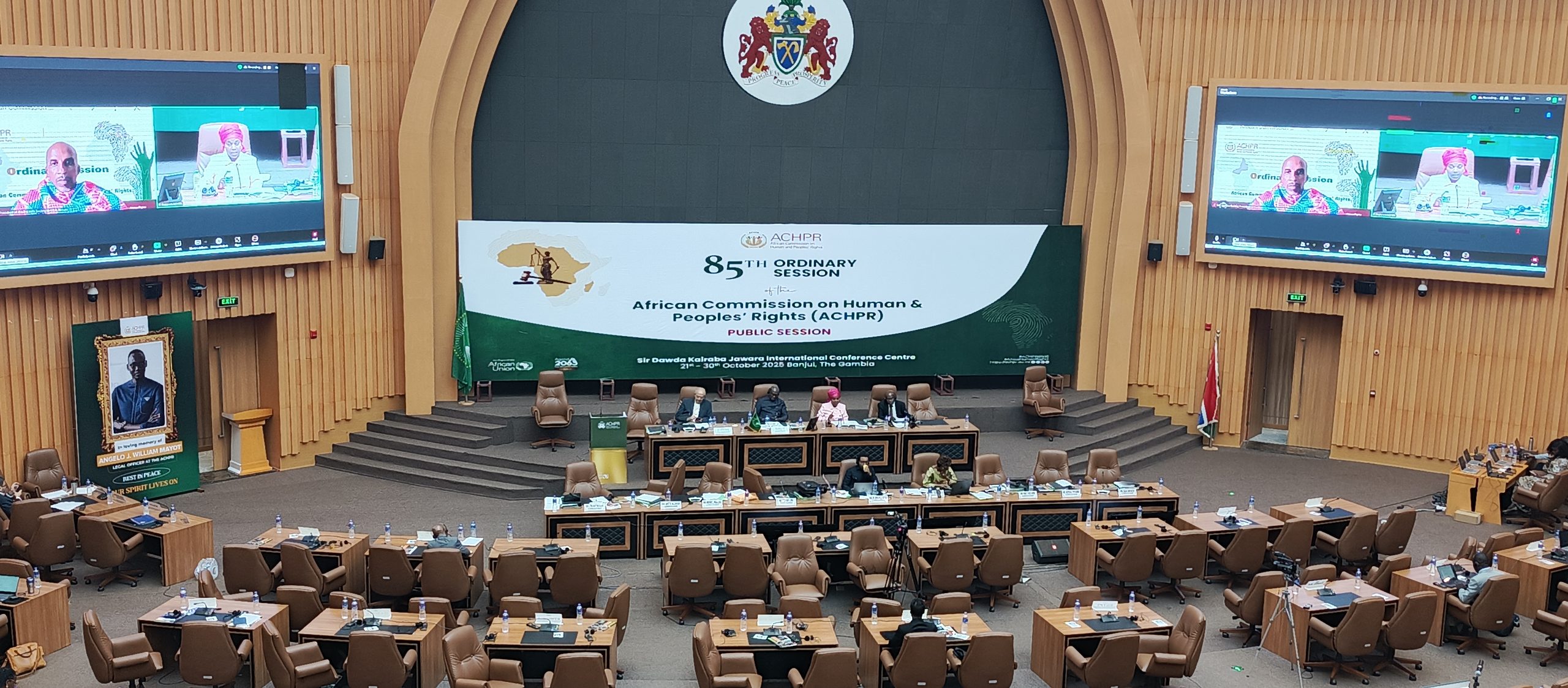© ACHPR

ACHPR85: African Commission monitors the implementation of the African Union 2025 theme
While the actions of the decade are orientated on the reparation of Africans and people of African descents, the African Commission held a panel to assess the implementation of the recommendations with a focus on human rights.
In line with the AU’s theme for 2025, the African Commission organised this panel to discuss the human rights-based approach to distribution required of Africans and people of African descent.
The African Union (AU) agenda emphasised a multidimensional approach to justice, which, as emphasised by Commissioner Zakaria Mudford Mwandenga, includes ‘restitution, rehabilitation, acknowledgment of harm, and guarantees of non-repetition,’ while aiming to ‘restoring dignity, correcting structure, inequality, and affirming the humanity of those historically marginalised’.
Recognising that this theme raised issues of ancestry, colonialism, slavery, abduction, enforced disappearance, apartheid, and racial discrimination, the panel analysed the issue of reparations from different perspectives.
Looking at the global level, the panel mentioned the UN basic principles on the right to remedy (2005), the UN second international decade (2025-2034), the International Convention on the Elimination of All Forms of Racial Discrimination (ICERD), and the International Covenant on Civil and Political Rights (ICCPR).
At the regional level, Mary Izobo referred to articles 2 and 3 of the African Charter and to African Commission resolutions 543 (LXXIII) and 616 (LXXXI), as well as soft laws, the Abuja proclamation, the Durban Programme of Action, and the Accra Declaration.
On the issue of repatriation through restitution, the panel acknowledged the recovery of stolen artifacts in some countries of the continent, including Benin and Nigeria.
On reparation through recognition of African descent, the panel indicated that, among countries that made a major step in this process are Benin, Ghana, Guinea, Guinea-Bissau and Sierra Leone, which granted citizenship to some persons of African descent in the diaspora.
To fully achieve the reparation, the panel discussed the need for, among others:
- Acknowledgment of historical crime
- Restitution of property
- Financial compensation
- Rehabilitation addressing intergenerational harm
- Satisfaction through truth-telling and memorandum
- Non-repetition through institutional reforms
'Reparation means a reunification of Africa with its diaspora.'Felipe Noguera, panellist (Caribbean Pan African and Indigenous Movement)
